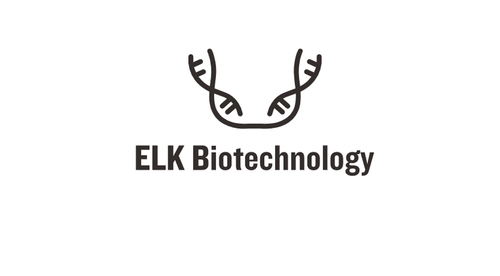Product Description
Human Cathepsin Z (CTSZ) ELISA Kit | AE61340HU | Abebio
Species Reactivity: Human (Homo sapiens)
Abbreviation: CTSZ
Alternative Name: CTSX; FLJ17088; cathepsin X|preprocathepsin P
Application: ELISA
Range: 0.156-10 ng/mL
Sensitivity: 0.062 ng/mL
Intra-Assay: ≤4.1%
Inter-Assay: ≤7.4%
Recovery: 1, 01
Sample Type: Serum, Plasma, Other biological fluids
Detection Method: Sandwich
Analysis Method : Quantitive
Test Principale: This assay employs a two-site sandwich ELISA to quantitate CTSZ in samples. An antibody specific for CTSZ has been pre-coated onto a microplate. Standards and samples are pipetted into the wells and anyCTSZ present is bound by the immobilized antibody. After removing any unbound substances, a biotin-conjugated antibody specific for CTSZ is added to the wells. After washing, Streptavidin conjugated Horseradish Peroxidase (HRP) is added to the wells. Following a wash to remove any unbound avidin-enzyme reagent, a substrate solution is added to the wells and color develops in proportion to the amount of CTSZ bound in the initial step. The color development is stopped and the intensity of the color is measured.
Product Overview: Cathepsin Z or cathepsin X is a lysosomal cysteine proteinase and member of the peptidase C1 family. It exhibits both carboxy-monopeptidase and carboxy-dipeptidase activities. The encoded protein has also been known as cathepsin X and cathepsin P. This gene is expressed ubiquitously in cancer cell lines and primary tumors and, like other members of this family, may be involved in tumorigenesis. The predicted 303-amino acid protein has the domain structure characteristic of cysteine proteinases, including a signal sequence, a prodomain, and a catalytic domain responsible for proteolytic activity. However, it also contains 3 unique peptide insertions. Cathepsin Z shares protein sequence identity with other human cysteine proteinases of the papain family, including 34% with cathepsin C and 26% with cathepsin B.
Stability: The stability of ELISA kit is determined by the loss rate of activity. The loss rate of this kit is less than 5% within the expiration date under appropriate storage condition. The loss rate was determined by accelerated thermal degradation test. Keep the kit at 37°C for 4 and 7 days, and compare O.D.values of the kit kept at 37°C with that of at recommended temperature. (referring from China Biological Products Standard, which was calculated by the Arrhenius equation. For ELISA kit, 4 days storage at 37°C can be considered as 6 months at 2 - 8°C, which means 7 days at 37°C equaling 12 months at 2 - 8°C) .
 Euro
Euro
 USD
USD
 British Pound
British Pound
 NULL
NULL








